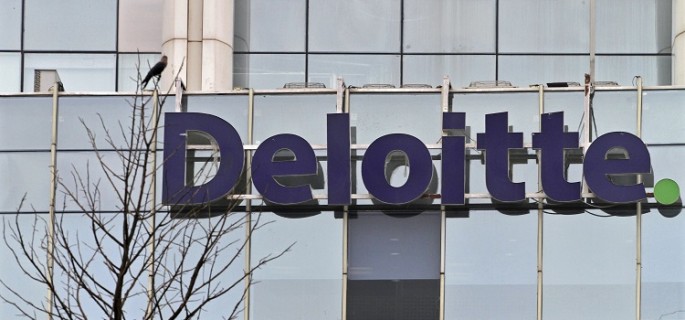Deloitte Exec Departs to Launch Tokenized Blockchain Research Lab

Back when Iliana Oris Valiente first started pitching her colleagues at Deloitte on the possible benefits of bitcoin, she was cautioned by a senior level executive that she might be doing damage to her reputation.
Now, one of the co-founders of Deloitte’s influential Rubix blockchain initiative is well-known for helping push the professional services firm to the forefront of distributed ledger consulting and development. That is, until last Friday, when she completed her final day at the firm.
Revealed today exclusively to CoinDesk, Valiente is now launching two startups in the research and development space.
The first, is a an open-source, crowdfunded, crowdsourced applied research and development hub. The second is an educational enterprise designed to shorten the learning curve for recent computer science grads seeking to make meaningful contributions to the blockchain industry.
The co-founder of Rubix by Deloitte, and former strategy and execution lead, told CoinDesk she views her new customers as the very same people who will help her pull off the endeavor: open-source researchers, startup employees and corporate executives.
Valiente said:
“This has value to all those groups of stakeholders, whether you’re talking about the research and development hub or the educational initiative, and I want to continue playing that role as a translator and a liaison between these various communities.”
First revealed today as part of her trip to CoinDesk’s Consensus 2017 conference, the research and development hub called ColliderX takes its name from the CERN particle collider in Switzerland, which leverages researchers, scientists and academics to make technological discoveries.
Borne from Valiente’s own personal experience encountering research questions, the newly launched Toronto non-profit organization gathers difficult to answer questions from around the industry and then lets contributors, backers, and a scientific selection committee prioritize the order they are addressed.
Crypto-tokens minted through an unspecified platform will then be used to rank the research questions in the order they will be answered based on the resources available, though she was careful to point out she doesn’t think the “governance tokens” as she called them will accrue value “as soon as it hits an exchange”.
A new business model
Initially, Valiente will encourage participants to select topics based on their status as foundational to the ability to answer other questions, and on them having a “smallish” scope that could lead to publishable results by a team of two researchers in a matter of months.
Currently, she has collected 25 topics provided by industry developers, including the potential roll that artificial intelligence could help figure out upper and lower bounds for smart contracts performance, leading to what she termed the creation of “crowd-trained smart contracts” that self-improve.
Among the list of researchers who have already submitted topics are Mir Adnan Ali of CG Blockchain who wants to explore how the augmented reality space can be tied into blockchain and Steve Mann, an early innovator in wearable augmented reality devices and a former professor at MIT.
ColliderX now counts among its partners the Association for Computing Machinery, which administers the Turing prize, representatives from the University of Waterloo, the University of Toronto, York University and MIT, with advisory work contributed by MME the law firm that helped incorporate the Ethereum Foundation.
ACM chair of the Practitioners Board Conference Committee, Toufi Saliba, explained why his group joined the project:
“We feel their intersection of effort with our initiative of colliding AI experts with Blockchain experts is quiet fascinating. We couldn’t wish for a better timing in running this and we will be looking forward to working closely.”
Blockchain learning curve
While the first half of Valiente’s post-Deloitte career is aimed at answering questions the professionals have, the second half of her work aims at questions of a different sort.
By the time Valiente left Rubix, she said her team was spending a significant amount of time on-boarding recently graduated new hires who she said had not been adequately prepared for a career in blockchain, something she hopes to change by working closely with schools and universities.
Initially, she said she’s starting with a handful of universities at which she has contacts, working with them to built out their curriculum to better prepare graduating students for the blockchain work force.
As jobs in the blockchain space become increasingly in demand, Valiente believes her second project has as much a chance to go global as the research and development itself.
She concluded:
“Ideally, the fundamentals would be covered in training programs and schools before candidates start full time work. There’s plenty of on the job learning that will still need to happen once the theory ends and the practice begins.”
Source: CoinDesk




























